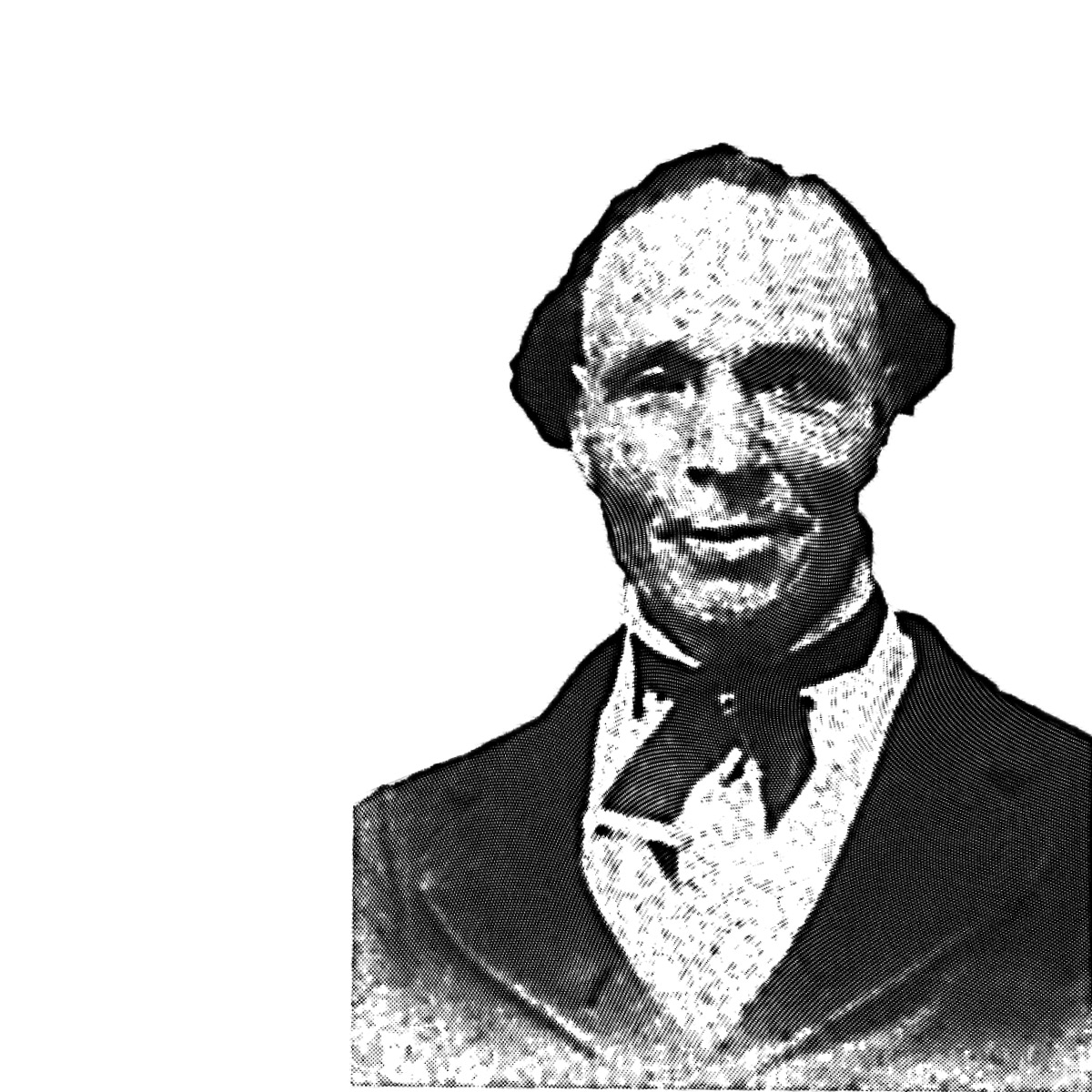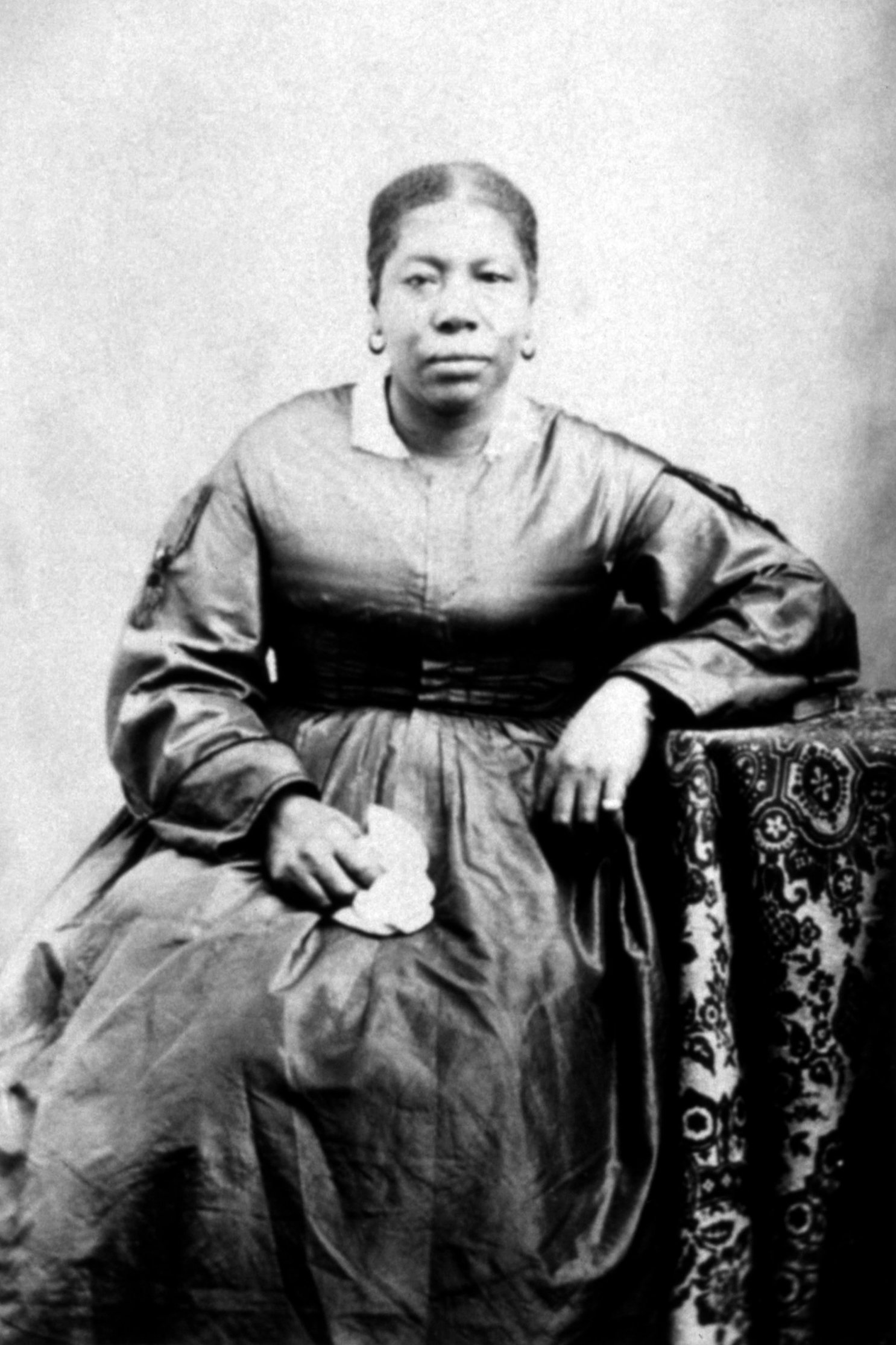Black Saints and the Priesthood (Joseph Smith era)

Timeline (1829-1844)
June 1829
December 1830–May 1831
December 1830
Joseph Smith's translation of Moses 7:22 states "the seed of Cain were black."[3]
February–March 1831
In his Bible translation, Joseph Smith adds a phrase to the account of Noah's cursing of Canaan: "a vail of darkness shall cover him that he shall be known among all men."[4]
July 1, 1833
ca. 1834
March 1835
William W. Phelps writes that Cain's curse of a dark skin was continued through Ham's lineage and that he "[broke] the rule of God, by marrying . . . a black wife."[7]
August 1835
The Doctrine and Covenants is published with Section 102 directing missionaries not to teach or baptize slaves without permission from their masters.[8]
January 1836
Joseph Smith outlines rules for the Kirtland temple, including allowing "old or young rich or poor male or female bond or free black or white believer or unbeliever" to worship there.[9]
March 31, 1836
April 1836
Joseph Smith describes Black enslaved people as the "sons of Canaan" and uses examples from the Bible to advocate a non-interference approach to slavery.[12]
July 18, 1836
ca. 1838
October 1840
The First Presidency writes that the Nauvoo Temple will be a place of worship for "persons of all languages, and of every tongue, and of every color."[15]
January 1842
Joseph Smith refers to Black people in his journal as "sons of Cain."[16]
March 1842
Joseph Smith publishes the Book of Abraham, which states that Pharaoh, a descendant of Ham was "cursed . . . as pertaining to the Priesthood" and that he was "of that lineage, by which he could not have the right of Priesthood."[17]
August 1843
Joseph Smith teaches that priesthood is held "by right from the Eternal Gods - and not by descent from father and mother."[18]
ca. 1843–1844
October 1844
Wilford Woodruff writes to Brigham Young reporting that he is concerned that William Smith is soliciting funds from members, teaching "spiritual wifery" and performing eternal marriages without authorization.[21]
October 1845
ca. 1841–1844
June 1844
Joseph Smith is killed.[25]
April 1845
Apostle John Taylor states that Black people are the descendant of Ham and have "black skin which has ever been a curse" and are "apostate of the holy priesthood."[26]
Did Black members of the Church receive the priesthood during Joseph Smith's lifetime?
Yes. Two Black men—Elijah Able[BIO][27] and Q. Walker Lewis[BIO][28] —are known to have held priesthood office. There is also some evidence that Enoch Lewis,[BIO] son of Q. Walker Lewis, may have been ordained.[29]
Joseph T. Ball[BIO] was likely biracial[30] and held priesthood office[31] although he was listed as white on census records[32] and considered white by his contemporary peers.[33]
Was the ordination of Elijah Able authorized?
Yes. Elijah Able's ordination was authorized and recorded in the Church records and signed by Joseph Smith.[34]
Was the ordination of Q. Walker Lewis authorized?
The ordination of Q. Walker Lewis was reportedly performed in Massachusetts by Elder William Smith, but there is no documentation on the ordination.[35][36]
At the time, William Smith was reported to have mismanaged finances, performed unauthorized plural marriages, taught "spiritual wifery" and was excommunicated the next year.[37] William Appleby noted in his journal that the ordination of Q. Walker Lewis was "contrary to the law of the priesthood and Church,"[38] however, Wilford Woodruff did not mention anything about improper priesthood ordinations in his report about William Smith and the Church in Boston to Brigham Young.[39]
Both William Appleby and Brigham Young wrote positive comments about the personal character of Q. Walker Lewis, including that he was "meek and humble" and one of "the best elders."[40]
So does the excommunication of William Smith mean the ordination of Q. Walker Lewis didn't count?
No, not necessarily—but the lack of records, mismanagement of Church administration and ordinances by William Smith and his eventual excommunication somewhat complicates the historical record about the policy of priesthood ordination during the time of Joseph Smith.[41]
Weren't there several more Black Saints ordained during Joseph Smith's lifetime?
Probably not. Some historians have speculated that "Black" Peter[BIO] may have also held priesthood office;[42] however, there is no known documentary evidence indicating that he was ordained.
There is also no indication that any of the twelve Black men living in Nauvoo from 1839-1846 received priesthood ordinations or temple ordinances.[43]
Did Black members receive temple ordinances during Joseph Smith's lifetime?
No, except for Elijah Able, who received his washing and anointing in Kirtland in 1836[44] and participated in baptisms for the dead in Nauvoo.[45] Based on available records, no other Black Saints participated in the temple ordinances during Joseph's lifetime.[46]
However, in an 1840 First Presidency address, the Nauvoo Temple was described as a place of worship for "persons of all languages, and of every tongue, and of every color."[47]
Were there restrictions on Church membership for Black members?
No, not usually. According to William W. Phelps,[BIO] as of 1833, the Latter-day Saints had “no special rule” about admitting Black members to the Church.[48] However, Latter-day Saint leaders later placed various restrictions on baptizing Black members due to local circumstances related to slavery.[49]
Did Joseph Smith implement a policy to restrict Black members of the Church from the priesthood and temple ordinances?
Possibly, but there is no record contemporary with Joseph that indicates he taught or established a policy that Black Saints were to be restricted from the priesthood or temple ordinances.[50]
However, there is an 1847 reference from William Appleby to a Church policy of priesthood restriction during Joseph Smith's time as prophet.[51] There are also later accounts reporting that Joseph taught privately about a priesthood restriction from Abraham O. Smoot,[BIO][52] Zebedee Coltrin[BIO][53] and George Q. Cannon.[BIO][54]
Are the accounts of Joseph teaching about a priesthood restriction credible?
Possibly. However, the various accounts[55] of Joseph Smith teaching about a priesthood restriction are all recollections from many decades later and some aspects of some of the accounts are contradicted by other historical records.[56]
Some of these accounts were told to President John Taylor in 1879 and he concluded that the ordination of Elijah had "been ordained before the word of the Lord was fully understood" and that "it was allowed to remain."[57]
If Joseph had taught about a priesthood restriction for Black saints, wouldn't he have written it down or made a public announcement?
Possibly, but there is precedent for Joseph sharing important teachings privately to people in an unofficial context such as the doctrine of Heavenly Mother[58] and plural marriage.[59]
Did Elijah Able have his priesthood revoked by Joseph Smith?
Probably not. The only evidence of this is a secondhand account from Caleb Shreeve[BIO] that claimed that his father was personally told by Elijah Able that Joseph "withdrew" his priesthood, however this account cannot be corroborated.[60]
There is also an account from Zebedee Coltrin recalled many decades later that Joseph dismissed Elijah Able from the quorum of the seventy in 1836, however Joseph F. Smith recorded that he saw Elijah's ordination certificate dated in 1841 that confirmed he was a Seventy.[61]
Did Joseph Smith teach that Black people were "sons of Canaan" and that some people had been restricted from the priesthood due to their ancestry?
Yes. Like most people at the time, Joseph Smith believed that Black people were descendants of Canaan and Cain.[BIO][62]
And in 1842, Joseph Smith also translated the Book of Abraham, which describes a priesthood restriction seemingly related to the lineage Pharaoh shared with Canaan through Ham.[63][64]
However, there are no accounts of Joseph's contemporaries using the Book of Abraham as a rationale for priesthood restriction during his lifetime.[65]
How did early Church membership feel about Black people?
Early Church members came from a variety of national backgrounds, but they were predominantly white[66] and participated in the attitudes of general white society at the time.[67]
Because there were relatively few Black members among the early Saints,[68] there are relatively few records that indicate the disposition towards them. It seems as though early Saints generally considered Black people to be worthy of ministry and spiritual support,[69] but they felt conflicted about slavery.[70]

Was Joseph Smith racist?
Yes and no. There are relatively few records about Joseph and his disposition on Black people, but the few available show a conflicted position.[71] In the 1830s, he advocated for a neutral position on slavery[72] and taught that the Bible condoned it[73] but also received a revelation that no man should be in bondage.[74] He later strongly advocated for an end to slavery.[75]
On a personal level, there are accounts of his kindness and sympathy to Black people,[76] but there is one known record of Joseph using a racial slur.[77] Joseph and Emma invited Jane Manning James,[BIO] a Black woman, to board with his family,[78] and Jane said that Emma had offered to have her "adopted to them as their child."[79]
So did Joseph Smith implement the priesthood and temple restriction for Black Saints?
It's unclear. Some historians believe so,[80] others do not.[81] The Church does not take a position on this question,[82] and the documentary record is open to interpretation.
- George F.
“I totally get forgiving individuals who shared racist beliefs because of being a product of their time. I feel like it is different when a prophet teaches racist (false) doctrines in the name of the Lord. I don't know how to reconcile this with my understanding of prophets.” - Rhonda C.
“This was a great article. I’m glad I took the time to read it. I particularly like the summary. We need to remember that all men and women, other than Christ, were and are flawed. That’s ok. Their flaws are not an indication that Christ’s doctrine is flawed.” - W. Parkin
“Very informative and goes to show what kind of person Our Prophet was.” - D Smith
“I just want to say thanks for creating this website and your efforts to give truth, even when it goes against convenient norms. Us saints have become too casual in our knowledge of the facts and that's why so many can't handle it. We're a true church with a difficult history.” - Dan
“If you want to answer the difficult questions, I think that the history of discrimination AFTER J.S. is more problematic. Young's thoughts on the topic while prophet, and the ban for over a decade after the Civil Rights movement are where many have bigger questions.”



 about this topic
about this topic